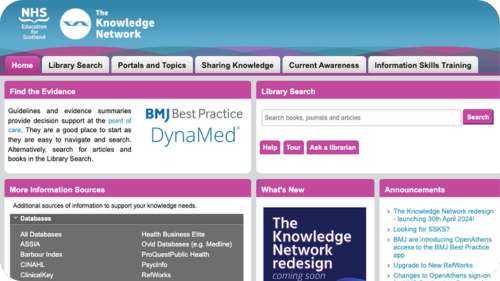Pharmacy Supervision Consultation Response
Published: 07/12/23
The Department of Health and Social Care (DHSC) has opened a public consultation on proposed changes to primary legislation relating to supervision in the pharmacy profession.
The policy drivers behind the proposed changes are in line with the CPS Vision in that the core aim is to support the best use of the skill mix in pharmacies and to free up pharmacist time wherever possible to support a focus on clinical service delivery. However, the detail of how DHSC propose to achieve our shared aims is significantly different to the current CPS position, which we have highlighted in our response.
In summary, the consultation is seeking views on the following approach:
Allow the responsible pharmacist (RP) to authorise a pharmacy technician to either carry out or to supervise others in carrying out the preparation, assembly, dispensing, sale and supply of P and POM medicines.
Allow the responsible pharmacist to authorise any member of the team to hand out checked and bagged prescriptions to patients or patient representatives.
Make consequential amendments to other regulations to support 1 and 2 above and bring parts of the Medicines Act (1968) and Human Medicines Regulations (2012) in line with more recent legislation
Note: this includes a proposal to change the regulation around P and POM supplies as being allowed “on” registered pharmacy premises to being allowed “at or from” registered pharmacy premises. There is no current CPS position on this change, which can be debated during this Board session.
NB - The elements of supervision that are not under consultation at present are remote supervision (No current CPS position) and the detail of how long an RP can be absent from the pharmacy premises (currently 2 hours, with the CPS position being to remove a set limit and enable local decision-making). The GPhC already has the power to set the regulations around the Responsible Pharmacist role, and will consult on these issues in due course.
The consultation makes clear that the changes to legislation would be followed by a period of time before enaction to allow the regulator (GPhC) and professional body (RPS) to produce relevant regulations and guidance for implementation, respectively.
The CPS Council and Board have previously undertaken workshops on this topic. Our current position can be summarised as follows:
The core principle of one RP to one pharmacy premises should remain
Assembly of prescriptions should not need to be supervised/have an RP signed in
Handout of prescriptions should require an RP to be signed in but not necessarily present
RP absence should be determined locally (i.e. get rid of 2-hour limit)
Our consultation response is included below - please note that answers have a 350 word limit, hence the relative brevity of the answers.
The full consultation and related documents can be found here. For reference, the consultation closes on the 29th of February.
-
Do you agree or disagree with proposal 1?
Disagree.
We fully support the core aims of freeing up pharmacist time and making best use of the available skill mix. However, Community Pharmacy Scotland (CPS) disagrees in part with the mechanism proposed.
Specifically, we believe that the preparation and assembly of P and POM medications can be safely carried out from a registered pharmacy premises, without requiring supervision by a Responsible Pharmacist (RP) or an authorised Pharmacy Technician:
Primary legislation should be amended to be as enabling as is safely possible, allowing the profession to test new ways of working whilst still having the (more flexible) safeguards of regulation in place.
The environment, technology, training, conditions and SOPs in the community pharmacy setting have a bigger effect on safety of preparation and assembly than supervision by an individual.
We propose that superintendents and owners that choose to work in this way would bear the responsibility for these elements of dispensing.
Upcoming consultations will provide the opportunity to make this clear.
There is a major flaw in the logic of this proposal – it relies heavily on individuals rather than on safe systems. New ways of working will be just as vulnerable to changes in personal circumstance (e.g. absence, change of job/employer), which will still result in abrupt and unsafe disruptions to the supply function and clinical services that we are trying to avoid with these proposals.
The impact assessment shows the benefits of proposal 1 are very limited, with only ~29% of pharmacists able to benefit due to Pharmacy Technician workforce issues that are highly likely to persist. 100% of Scottish pharmacies are already delivering a range of clinical interventions, with ~20% offering independent prescribing services, which will rise to 100% by the early 2030s. Every pharmacist will need to be decoupled from the technical aspects of preparation and assembly to unlock the potential that advancing practice holds and deliver a sustainable NHS.
We do agree that sale and supply should still require the supervision (but not necessarily presence) of a registered professional, and support the proposals as written for these elements of practice.
-
Do you agree or disagree with proposal 2?
Disagree.
We support this proposal in full. This will deliver a significant operational benefit whilst maintaining safety controls around the point of transfer by enabling the responsible pharmacist (RP) to decide on a case-by-case (and potentially a prescription-by-prescription) basis how prescriptions may be handed out.
Some of the wording in the draft order or subsequent guidance may, however, need to be refined. We understand the policy intent to be that the RP on a given day can authorise the handing out of checked and bagged prescriptions that have been made up at any point. However, the wording in section 220B reads as though a pharmacist may only authorise a person to hand out only what has been dispensed by or under their supervision. This is impractical in practice, and forward authorisation for an unspecified time in the future to an unknown team is also problematic. The paragraph may also neglect to take into account that it has been an authorised pharmacy technician that has supervised elements of the dispensing process (as per proposal 1).
We would also point out that, although it is our understanding that they will be, the proposals are not explicit in whether controlled drug prescriptions are included in the proposals. This should be taken into account when developing professional and regulatory guidance.
Although not currently being consulted upon, we will take the opportunity to suggest that the maintenance of the arbitrary 2-hour absence limit for the RP is short-sighted, and should be changed in line with the risk-based approach the profession is moving towards in general. Particularly for remote/rural/island communities, this could be the difference between continuity of care being maintained and clinical incidents occurring. We are absolutely clear that there should only be one RP per pharmacy premises, but how they exercise their duties requires to be more flexible to support delivery of modern healthcare in all communities.
-
Agree.
As representatives of community pharmacy owners, we are admittedly not experts in this particular area of pharmacy practice. However, we can support this proposal as it is in line with the general move away from legislative barriers to professional empowerment and enablement. The whole profession and the NHS should stand to benefit from this rare opportunity to amend primary legislation. As in our answers to the questions above, if the conditions and controls in place can satisfy the chief pharmacist that a new way of working is safe to test, then this should not be prohibited. Who carries out a particular role should be based on a risk-assessment rather than being limited to a specific role type that tells us little about competence other than initial education and training.
‘At or from’
We propose that Regulation 220 of the Human Medicines Regulations 2012 is brought into line with the changes already made to other legislation concerning the supply of medicines ‘at or from’ a registered pharmacy premises. This is to better reflect current practice, particularly in the provision of delivery services from a registered premises.
Do you agree or disagree with this proposal?
Neither Agree nor Disagree.
The proposed change to the wording achieves the intended aim. However, unless the next layer of governance prevents it, there is a risk of unintended consequence if taken as a signal by NHS/Government commissioners as a signal to permit certain practices locally in legislation. For example, when considering off-premises collection sites. Unlike established delivery services utilising a member of the pharmacy team, these offer no opportunity for clinical intervention and are potentially disruptive to existing community pharmacy businesses that need to keep a supply function to support the viability of clinical service delivery. For a very few underserved communities, we can see that this change may bring benefits, which is important. However, this is only the case in communities that do not already have reasonable access to pharmacy services.
There are also concerns around what this may permit in terms of hub and spoke operations – in order to support a strong and sustainable community pharmacy network, it is our view that collection and deliveries should only occur at or from the “spoke” sites.
Both of these concerns could well be addressed by local NHS regulation making clear what is and is not acceptable practice in the handling of NHS prescriptions.
Legislative barriers
Do you think there any other barriers to modernising pharmaceutical practice in government legislation that we should consult on removing in the future?
Yes.
Currently, Patient Group Direction (PGD) legislation does not allow delegation of any part of the intervention by the authorised professional. This makes sense for those elements of the process which require a certain level of initial education and training, but technically prevents pharmacy teams from putting in place safe measures that improve the efficiency of their operations without compromising on safety. For example, information gathering and administration (e.g. of injectables) are not skills limited to registered professionals. A review of this legislation would be supported by CPS.
As the initial education and training of pharmacists evolves to be far more practice-based than ever, it would be wise to review whether trainee pharmacists could be authorised by an RP to carry out or indeed supervise the carrying out of different elements of pharmacy practice as per proposal. 1. This could also be the case for any trainee in any registered profession for PGDs.
Impact assessment
If you have any further information to inform the consultation-stage impact assessment on the costs and benefits of each option, please provide it here.
The estimate of 15 minutes per professional to understand the changes to regulation is a vast underestimate, based on our experience with the profession adopting the original Responsible Pharmacist regulations. This estimate also does not take into account the time that pharmacy owners and superintendent pharmacists will take to understand and implement changes.
This said, we are still very confident that there is a significant net benefit to be realised.
We believe that the stated rationale for these changes encouraging more people into the pharmacy technician profession is weak. There is no evidence to suggest that increased accountability/responsibility will be strong motivators to support entry into training or specific roles.
The assertion that preparation and assembly of P and POM medications requires or is safer when supervised by a registered professional is not backed up with an evidence base.
If you have any further comments on any aspect of the draft statutory instrument, please provide it here
Some of the wording in the draft order or subsequent guidance may need to be refined to avoid potential misunderstanding. We understand the policy intent to be that the RP on any given day can authorise the handing out of previously checked and bagged prescriptions that have been made up at any point. However, the wording in section 220B reads as though a pharmacist may only authorise a person to hand out only what has been dispensed by or under their supervision. This is impractical in practice, and the mechanism of forward authorisation for an unspecified time in the future to an unknown team is also problematic. The paragraph may also neglect to take into account that it has been an authorised pharmacy technician that has supervised elements of the dispensing process (as per proposal 1). This should all be reviewed and either changed in line with the policy intent or made clear in subsequent guidance.





























The new updated version of Part 7 is now available for May 2024. In this month there are three deletions to Part 7S of the drug tariff we wanted to make you aware of.